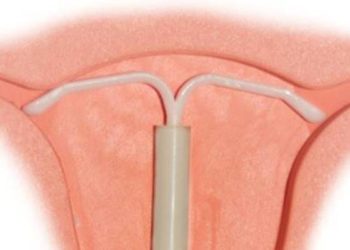Lower long-term IUD use among young women
1. Women over 29 years were less likely to discontinue intrauterine device (IUD) use at 48 and 60 months.
2. Reasons for discontinuation included desire to attempt pregnancy, bleeding, and other side effects.
Evidence Rating Level: 2 (Good)
Study Rundown: IUDs are a commonly used type of long-acting reversible contraception and are a superior method to prevent unintended pregnancy. In more recent years, the number of American women using IUDs has been increasing. The two main types of IUDs are the copper IUD (Cu-IUD), approved for 10 years of use, and the levonorgestrel-releasing IUD (LNG-IUD), approved for 5 years of use. IUDs are an appropriate choice for women who do not wish to become pregnant within the next 2 years, have a low risk of acquiring sexually transmitted infections, and/or desire hormone-free contraception. The two IUD types have different side effect profiles. Cu-IUDs are associated with cramping and increased bleeding, whereas LNG-IUDs may cause changes in bleeding pattern including amenorrhea. Prior studies of IUD continuation have been limited to 1 year. In the present work, the authors assessed long-term continuation of IUD and reasons for discontinuation. They found that rates of continuation were similar at 48 and 60 months and that women aged 29 and up were less likely to discontinue their IUD when compared to their younger peers.
Strengths of this study included long-term follow-up and data collection from multiple sources. Generalizability to other populations was limited due to the majority of participants had free access to contraception. Further, only 70% of women were reached for interview. Further large prospective studies in populations with contraception access comparable to that of the general population are needed to better characterize trends in long-term IUD use.
Click to read the study in AJOG
Relevant Reading: Continuation and satisfaction of reversible contraception
In-Depth [prospective cohort]: This study evaluated long-term IUD use in women with LNG-IUD (n = 234) and Cu-IUD (n = 226). The primary outcome of interest was continued use at 48 and 60 months. Secondary outcomes were reasons for discontinuation.
There were no differences in the likelihood of IUD discontinuation by IUD type (HR 1.24, CI 0.94-1.64). Women who were >29 years of age were less likely to discontinue IUD use at 48 months (HR 0.67, CI 0.47-0.96). Reasons for discontinuation differed by IUD type: LNG-IUDs were most commonly discontinued due to expiration date and side effects while women with Cu-IUDs were more likely to discontinue due to increased bleeding and to attempt pregnancy.
Image: PD
©2015 2 Minute Medicine, Inc. All rights reserved. No works may be reproduced without expressed written consent from 2 Minute Medicine, Inc. Inquire about licensing here. No article should be construed as medical advice and is not intended as such by the authors or by 2 Minute Medicine, Inc.







